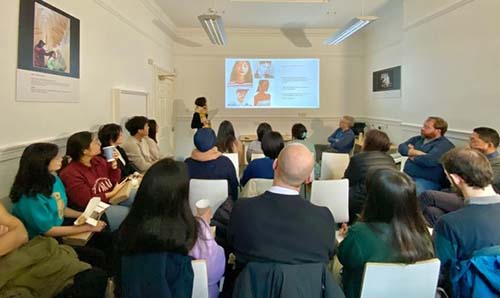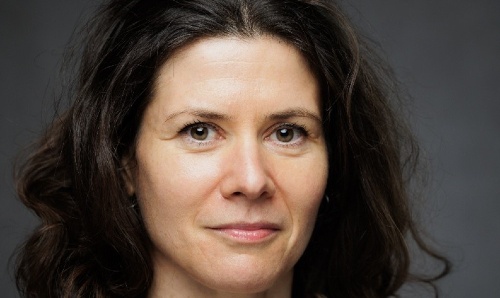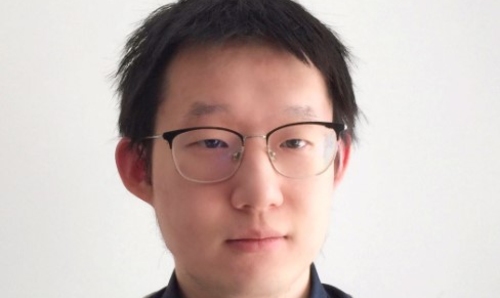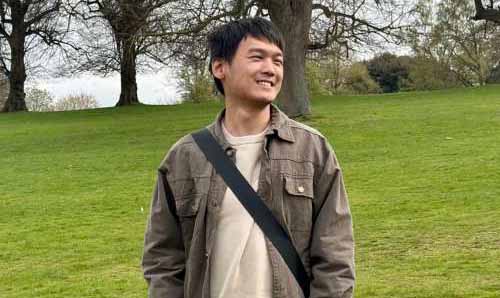教职员科研差旅费 | Staff research travel funding
Nurturing excellence in China studies

MCI provides small travel grants for staff at The University of Manchester who need to fly to the Chinese-speaking world to conduct research in China studies, and for early career researchers from the Chinese speaking world to come to Manchester.
It also seeks to fund faculty research activity producing at least one specific outcome, such as a research proposal, a new research network, a research impact event, a working paper, or a report or journal article.
Funds can be used to host events, and to purchase academic resources like books and databases, as well as for travel to libraries and other sites of academic research.
History
In 2022 Dr Lee Kai Hung generously donated £100,000 to match other charitable gifts, and support student travel to China. This was later broadened to include staff research travel. See:
- "MCI Fund supports academic exchanges between the UK and Greater China", 26 October 2022
How to apply
Please complete this form. The application is now open and will close at 5pm on 27 February 2026.
2025/26 awardees
In this academic year, we are delighted to offer faculty research grants to staff and ECRs from the University of Manchester that are flying to the Chinese-speaking world to conduct research in Chinese Studies.
Elena Barabantseva

The MCI Travel Award will support my fieldwork in Shanghai, where I will investigate how Russia’s war in Ukraine is affecting diasporic communities from the former Soviet republics. These groups have historically used Russian as a lingua franca to facilitate communication across various aspects of daily life, fostering transnational support networks and diasporic community building. However, the ongoing conflict has disrupted these dynamics, creating new lines of division and, in some cases, open hostility within these communities.
Building on a pilot study conducted in Beijing, I will extend my research to Shanghai - home to a significant population from the former Soviet Union - and to Heihe, a Chinese border town adjacent to Russia. This fieldwork will offer valuable insights into how diasporic communities interpret and experience the war from a distance. The findings will contribute to a scholarly article targeted for publication in a peer-reviewed International Relations journal.
Sha Zhou

I am a Research Associate at the Manchester China Institute, currently working on a project exploring Chinese grassroots activism in 1980s Britain.
This study draws on archival materials, oral histories, and bilingual publications to examine how ethnic Chinese activists mobilised in response to increasing state interest - particularly following the Home Affairs Committee Report: The Chinese in Britain (1985). By situating this activism within the broader context of race relations and ethnic minority politics in Thatcher-era Britain, the project foregrounds Chinese agency in shaping multicultural policy. A key aim is to explore the sources of inspiration and support these activists drew on – both locally and globally – including British anti-racist activists, white leftists, and grassroots activists in Hong Kong.
With this grant, I will be able to conduct a research trip to Hong Kong in early 2026 to access key archival and literary sources, enriching the transnational dimension of this study. This visit will also support future collaborations with Hong Kong scholars and enhance my trajectory as an independent migration historian.
Ed Pulford

My name is Ed Pulford and I will be using my grant from the MCI Staff Research Travel fund to support a visit to China in connection with my current project ‘Transnational Chinese minorities: Identity and Opportunity in the age of ‘global China.’
Since I am an anthropologist my research is rooted in extended fieldwork, which I have undertaken for this project in Vietnam, Kazakhstan and Korea – all countries which neighbour China and have minority populations who are also minorities in China itself.
To complement this fieldwork I plan to visit counterpart China-based communities to those I have been working with, specifically in Xi’an in Shaanxi province and Nanning in Guangxi Zhuang Autonomous Region. In these places, as well as drawing on connections I have made during fieldwork to speak to members of transnational minority groups who sojourn and study in these cities, I plan to consult with local China-based experts and scholars.
Tian Liu

I am a lecturer in the Department of Politics, specialising in political economy of development, institutional change, food politics, and historical capitalism. The MCI travel funds will support two summer research projects: 1. Follow-up fieldwork for my first book project on agrarian capitalism and food security in China; 2. New field research on the Chinese state’s attempts to harness digital platforms to expand agricultural producers’ market access and reduce rural poverty.
For the first project, I will revisit my field site in Anhui Province to assess the current state of agribusinesses and peasant households. For the second project, I have conducted two rounds of interviews at TikTok’s Beijing headquarter and P County, Fujian Province, which has been a major successful case of TikTok’s online rural retail drive. In the coming summer, I will continue my research in the two locations, interviewing platform employees, local officials, and agricultural producers.
The MCI funding facilitates the collection of updated data for my first book manuscript. It also enables me to pursue new research that contributes to key debates on platform governance, rural development, and spatial inequality. Overall, this support significantly strengthens the foundation of my work as an Early Career Researcher at Manchester.
Lorelei Baciu

I work as the Engagement & External Relations Administrator at the Manchester China Institute, and I hold a BA in Politics and Sociology from The University of Manchester.
The MCI Travel Fund will support my fieldwork this summer in Beijing, Shanghai, Jiangsu, and Zhejiang provinces, as part of a joint project with Tabita-Gabriela Juravle, Development Officer at Imperial War Museums. During this time, we will visit prominent history, war, and military museums to conduct direct observational research on how these spaces are curated and instrumentalised to promote nationalism.
Our project investigates representations of the "China Dream" (中国梦) within museum contexts, aiming to critically examine how militarised narratives and cultural symbols are leveraged to advance Chinese nationalist discourse.
Given the concurrent rise of nationalism in both China and the West, the implications of this research are timely and significant. In China, anti-Western and anti-Japanese sentiments have intensified with Xi Jinping’s ‘wolf warrior’ diplomacy, while in Western contexts, anti-Chinese attitudes have grown amid the Covid-19 pandemic. This study seeks to uncover how nationalism is being reshaped through cultural institutions during this pivotal moment, particularly in light of the rapid expansion of China’s museum sector.
Dr Meng Zhang

Dr Meng Zhang is a historian of medicine and colonialism in modern China and currently a Wellcome Fellow at the Centre for History of Science, Technology and Medicine, University of Manchester. He’s interested in how medical knowledge intersected with political ideologies that informs imperial and national governance.
His new project will explore the big convergence (rather than divergence) of some elite physicians from Imperial Japan and the United States - publicly and intellectually shared a more critical view towards earlier colonial models of medicine in mainland China. In different yet strikingly parallel contexts, both men called for a more “de-imperialised” medical order. Their critiques emerged from deep engagement with the ethical failures of pre-war imperial medicine and attempts to reimagine the role of science and public health in more collaborative, postcolonial terms.
Dr Zhang has already gathered a wide range of materials from Japan and the United States. With this funding, he will be able to collect primary sources in China and prepare for the next phase of his research, including the development of a proposal for further funding.
2023/24 awardees
Chengzhi Zhang

Chengzhi is currently a doctoral research student at the Department of Politics, The University of Manchester.
His research project is primarily focused on the lived experience and identity formation of the second generation of immigrants to China, which is a fast-growing but underexplored group resulting from China’s Opening Up movement.
Chengzhi is currently also one of the convenors of the Early Career Researcher (ECR) workshop at Manchester China Institute, and a member of British Association for Chinese Studies (BACS).
